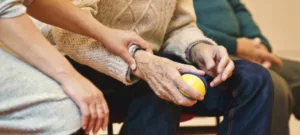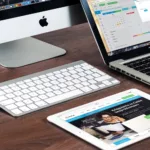Rachael was nervous. Her mother had not called in hours. She had no way to get in touch with her. Her mother didn’t email or even use a cell phone. Because Rachael lived so far away, she called a cousin to go check on her mother. She arrived just in time. The 75-year-old lady was lying on the floor. She had fallen and couldn’t get up. She was dehydrated and weak.
From the investigation, it appeared that she had been there for more than six hours. Rachael and her husband jumped in the car and made the trip from Ohio to Tennessee to be with her mom. It was the longest trip of her life.
Fast-forward three months, Rachael once again felt something was wrong. Thankfully, this time her mom was only dehydrated for about an hour. She knew she had to do something to help her and to ease her nerves. She looked to a local company to put sensors in the home. The sensors connect to a dashboard on her smartphone app.
If her mother moves about, the sensors detect her movement. If she hasn’t moved in a while, then she will know the lack of movement could mean trouble. Now, Rachael can check the system to make sure her mom is okay anytime she wants. It brought peace of mind to both of them.
Concerns For Aged Care Providers
According to the last US Census, more than 15 percent of the population is age 65 or older. However, by 2040, it is estimated that it will rise to 21 percent. By 2020, 12 million seniors will need long-term care. Determining the safest way to deal with the elderly stirs many emotions. Many older people want to stay in their home rather than turning to nursing care, but how can the family make sure there is food in the refrigerator and that they take their medications?
A Smart Home For The Elderly
Technology has been introducing more products that make the home smart and efficient. Think about Amazon Echo or Google Home. What about the refrigerators that can tell you when you are out of milk? These devices are easy for the tech-savvy individual, but when it comes to the elderly crowd, it’s way beyond their grasp. In the instance of Rachael’s mom, her home isn’t necessarily smart, but she is using some of these features to remain safe.
She doesn’t have cameras sitting around, so she doesn’t feel like her privacy is being invaded. Another thing that was added to her home was a video intercom system. Think of it as an iPad, but the camera has a retractable cover. Rachael can call her mom, and her mother can answer it with her voice. If the phone was ringing and she fell on the floor, then she wouldn’t be able to answer it. However, with this device, she could yell out for help even when she couldn’t get up.
Using Technology To Enhance Independent Living
Honey Co is one of the few companies that offers services of this nature. They are headquartered in Nashville. They are changing the market for aged care providers. They have other products than those listed above. They have remotes to shut off stoves, and a way to help clients keep up on their medications with a smartwatch. Would it be too much to even monitor the toilet to see how much fluid is being consumed?
Well, they have that option too. The latest movement in smart home technology is for seniors. So far, it seems that these products are allowing independent individuals to stay in their homes longer, and they are avoiding assisted and full-time care facilities. With the cost of nursing care on the rise, using smart products will keep people in their homes longer.








